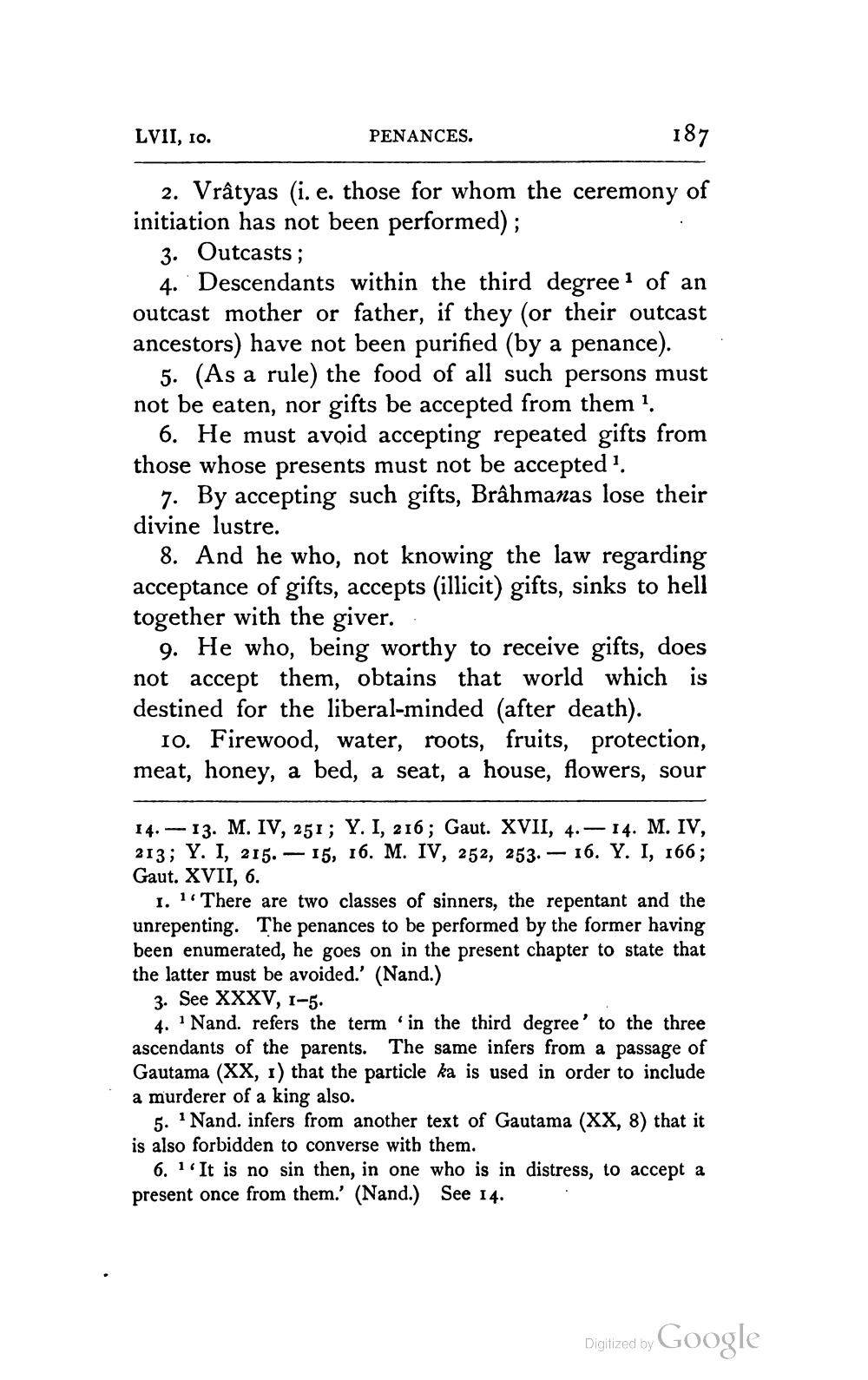________________
LVII, 10.
PENANCES.
187
2. Vrâtyas (i. e. those for whom the ceremony of initiation has not been performed);
3. Outcasts;
4. Descendants within the third degree of an outcast mother or father, if they (or their outcast ancestors) have not been purified (by a penance).
5. (As a rule) the food of all such persons must not be eaten, nor gifts be accepted from them.
6. He must avoid accepting repeated gifts from those whose presents must not be accepted.
7. By accepting such gifts, Brâhmanas lose their divine lustre.
8. And he who, not knowing the law regarding acceptance of gifts, accepts (illicit) gifts, sinks to hell together with the giver..
9. He who, being worthy to receive gifts, does not accept them, obtains that world which is destined for the liberal-minded (after death).
10. Firewood, water, roots, fruits, protection, meat, honey, a bed, a seat, a house, flowers, sour
14. - 13. M. IV, 251; Y. I, 216; Gaut. XVII, 4. — 14. M. IV,
215. — 15, 16. M. IV, 252, 253. - 16. Y. I, 166; Gaut. XVII, 6.
1. 1. There are two classes of sinners, the repentant and the unrepenting. The penances to be performed by the former having been enumerated, he goes on in the present chapter to state that the latter must be avoided.' (Nand.)
3. See XXXV, 1-5.
4. Nand. refers the term in the third degree' to the three ascendants of the parents. The same infers from a passage of Gautama (XX, 1) that the particle ka is used in order to include a murderer of a king also.
5. Nand. infers from another text of Gautama (XX, 8) that it is also forbidden to converse with them.
6. 1. It is no sin then, in one who is in distress, to accept a present once from them.' (Nand.) See 14.
Digitized by Google




